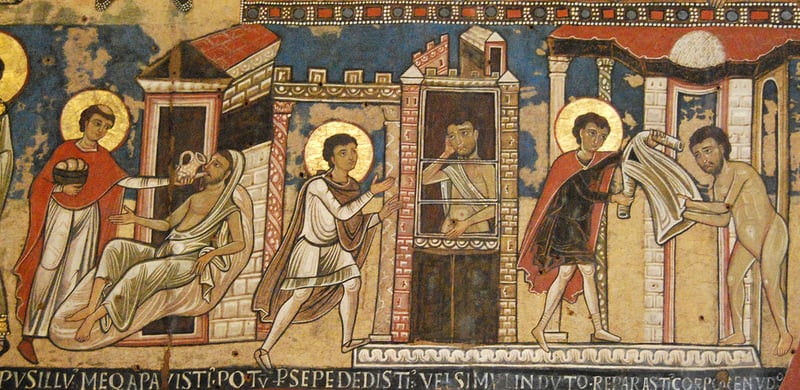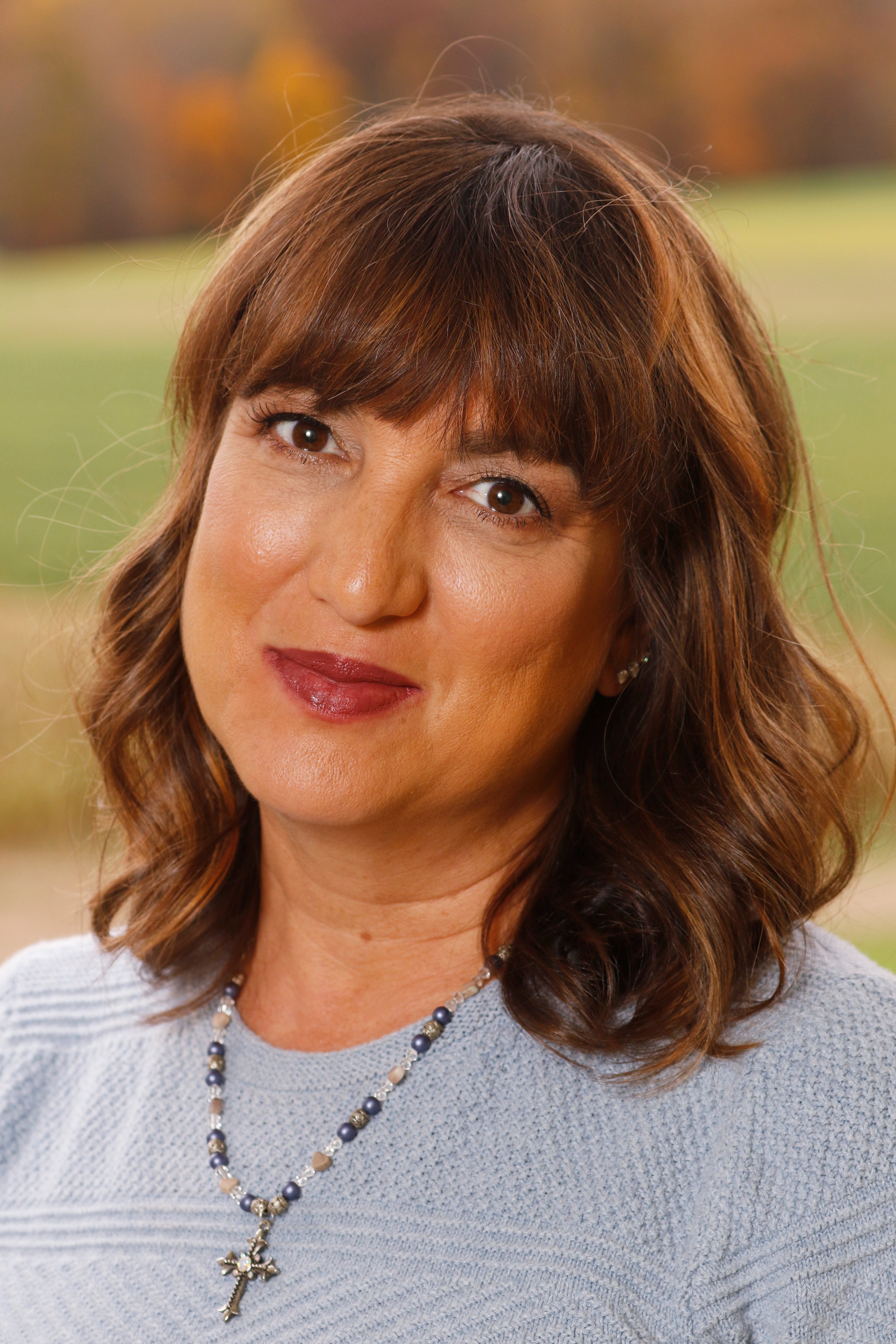 "Works of Mercy" photographed by Jim Forest (2008) via
Flickr, CC BY-NC-ND 2.0
"Works of Mercy" photographed by Jim Forest (2008) via
Flickr, CC BY-NC-ND 2.0
"Then the righteous will answer Him, ‘Lord, when did we see You hungry, and feed You, or thirsty, and give You something to drink? And when did we see You a stranger, and invite You in, or naked, and clothe You? When did we see You sick, or in prison, and come to You?’ The King will answer and say to them, ‘Truly I say to you, to the extent that you did it to one of these brothers of Mine, even the least of them, you did it to Me.’ " (Matthew 25:37-40)
Isn't it wonderful? All the opportunities that come with this time of year to practice the works of mercy. There are can food drives through which we may feed the hungry. Mitten trees and coat drives enable us to clothe the naked. Bingo and Christmas caroling at nursing homes provide chances to visit the sick. Being hospitable to all the family and friends who will visit, especially those who may "be staying a few days," can even be seen as giving shelter to the homeless when welcoming them with the love of Jesus.
Our Lord lets us know, through St. Matthew's Gospel, that these acts of charity are good and necessary. Perhaps that is why upon performing the corporal works of mercy we often feel good. Even more so when we actually get to deliver the food or clothing and interact with those we are serving. We can then see the difference our simple gestures make. Indeed, we are most happy when we are living for others more than for ourselves.
How about the spiritual works of mercy: instruct the ignorant, counsel the doubtful, admonish the sinner, bear wrongs patiently, forgive offences willingly, comfort the afflicted, pray for the living and the dead. Why do we find these harder to perform (with, perhaps, the exception of the last one)? Why is it that we do not perform these acts as often as their corporal counterparts?
[Tweet "Why don't we perform spiritual acts of mercy as often as corporal works?"]
Are there not as many opportunities? I don't think so. There is plenty of sin, doubt and ignorance in our world nowadays. Many wrongs to bear and forgive. Too many who need comfort in their affliction. So why, then, do we not perform the spiritual works of mercy as often as the corporal works?
I purpose two reason why: 1) they are harder to do, and 2) we don't always get that good feeling that we do when we perform a corporal work of mercy.
Prayer and a bit of wisdom is required to instruct, counsel and admonish. We must trust that God will give us the right words, unassuming confidence, and a gentle disposition. Moreover, it is not easy to bear wrongs without complaint, and even harder to forgive of our own free will, especially if the person who has hurt us has not asked for forgiveness. In order to truly be able to touch another soul, we must develop the gifts of the Holy Spirit - wisdom, knowledge, understanding, piety, counsel, fortitude and fear of the Lord.
It takes courage to instruct, counsel, and admonish. We fear not saying the right thing, being accused of being hateful, and/or ending up in an argument. Instruction, advice and especially admonition is not always well-received. Thus, we may walk away from a spiritual work feeling unsure about what we did or sadden by the response. Definitely not that same good feeling we experience giving a homeless person a Happy Meal.
Perhaps that is why praying for the living and the dead is the only spiritual work many of us will ever do. We see the need, but think, "I'll pray about that and let the Holy Spirit take care of it." Prayer is most needed, for sure, but so are works. Sometimes, the Holy Spirit needs a mouth to speak out loud. Sometimes, He needs arms to wrap around someone. Sometimes, He wants us to be willing to stand up for Him.
So let us take advantage of every opportunity given us to spread the good news that God loves us, His mercy is meant for us, He sees and cares for us. God provides everyone with all that they need, body and soul. Sometimes, many times, He chooses to provide those needs through us.
Copyright 2016 Kelly Guest
About the Author

Kelly Guest
Kelly Guest is the author of Saintly Moms: 25 Stories of Holiness. For over 30 years, she has worked in various ministries in the Church, beginning with her five years as a Dominican sister. She is now the Director of Family Faith Formation at her parish. She lives with her husband Paul and their nine wonderful children in the rolling country hills of Maryland.


.png?width=1806&height=731&name=CatholicMom_hcfm_logo1_pos_871c_2728c%20(002).png)
Comments